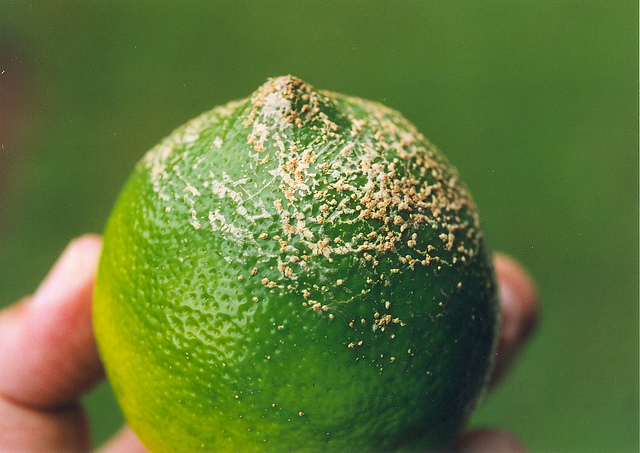See tips on managing citrus mites in Florida groves.
Florida citrus growers must deal with citrus mites in addition to everything else. According to a Citrus Industry article, there are three different mites that cause damage to commercial groves. See tips from the article for managing the three different types of mites below.
Managing Citrus Mites
Rust Mites
- “Rust mites are the most important of the economically relevant groups and include the citrus rust mite and the pink citrus rust mite. Both species feed on fruit and leaves, which causes damage to epidermal cells.”
- “Monitoring for rust mites should begin in early April and continue every two to three weeks throughout the season. In general, rust mite populations begin to increase in May and then decline in late August.”
- “Significant increases in late October and early November have been seen in recent years. Thus, monitoring for mites should not be neglected during the fall peak.”
- “Natural enemies of rust mites include predaceous mites, small inconspicuous ladybeetles and the fungus Hirsutella thompsonii. Current control measures for Asian citrus psyllid and citrus canker could impact rust mite control programs. Applications of broad-spectrum insecticides, especially pyrethroids like Danitol, Baythroid or Mustang, can cause rust mite populations to flare.”
Spider Mites
- “Spider mites are found primarily on mature leaves. Unlike rust mites, spider mites feed underneath the epidermis in the palisade cell layer. Spider mite feeding causes mesophyll tissue to collapse, resulting in small chlorotic spots called “stippling.”
- “Spider mites are typically kept in check by a broad range of biological control agents, including predatory mite species and pathogens. These beneficial organisms are hindered by dry conditions, which favor spider mite populations. Petroleum oil kills eggs. Application of miticides may only be necessary if populations rise to the point where 10 mobile mites are observed per leaf between September and May.”
Broad Mites
- “Broad mites are particularly important in greenhouse settings and on lemons and limes grown in the field. Broad mites primarily feed on the youngest and most tender leaf flush tissues. New leaf growth is distorted by a toxicant in the saliva that is injected by these mites.”
Read the entire article here.
Griffin Fertilizer is committed to helping both growers and ranchers make sound agronomic and economic decisions in order to maximize the health of their grove and pasture. As a full-service custom dry & liquid fertilizer blender and crop protection product distributor, we will continue our mission to further advance Florida agriculture. For questions or concerns about your farm or pasture, contact us and one of our team will be in touch.

